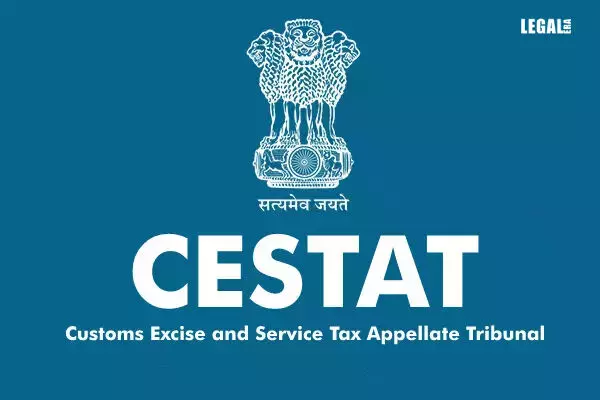- Home
- News
- Articles+
- Aerospace
- Artificial Intelligence
- Agriculture
- Alternate Dispute Resolution
- Arbitration & Mediation
- Banking and Finance
- Bankruptcy
- Book Review
- Bribery & Corruption
- Commercial Litigation
- Competition Law
- Conference Reports
- Consumer Products
- Contract
- Corporate Governance
- Corporate Law
- Covid-19
- Cryptocurrency
- Cybersecurity
- Data Protection
- Defence
- Digital Economy
- E-commerce
- Employment Law
- Energy and Natural Resources
- Entertainment and Sports Law
- Environmental Law
- Environmental, Social, and Governance
- Foreign Direct Investment
- Food and Beverage
- Gaming
- Health Care
- IBC Diaries
- In Focus
- Inclusion & Diversity
- Insurance Law
- Intellectual Property
- International Law
- IP & Tech Era
- Know the Law
- Labour Laws
- Law & Policy and Regulation
- Litigation
- Litigation Funding
- Manufacturing
- Mergers & Acquisitions
- NFTs
- Privacy
- Private Equity
- Project Finance
- Real Estate
- Risk and Compliance
- Student Corner
- Take On Board
- Tax
- Technology Media and Telecom
- Tributes
- Viewpoint
- Zoom In
- Law Firms
- In-House
- Rankings
- E-Magazine
- Legal Era TV
- Events
- Middle East
- Africa
- News
- Articles
- Aerospace
- Artificial Intelligence
- Agriculture
- Alternate Dispute Resolution
- Arbitration & Mediation
- Banking and Finance
- Bankruptcy
- Book Review
- Bribery & Corruption
- Commercial Litigation
- Competition Law
- Conference Reports
- Consumer Products
- Contract
- Corporate Governance
- Corporate Law
- Covid-19
- Cryptocurrency
- Cybersecurity
- Data Protection
- Defence
- Digital Economy
- E-commerce
- Employment Law
- Energy and Natural Resources
- Entertainment and Sports Law
- Environmental Law
- Environmental, Social, and Governance
- Foreign Direct Investment
- Food and Beverage
- Gaming
- Health Care
- IBC Diaries
- In Focus
- Inclusion & Diversity
- Insurance Law
- Intellectual Property
- International Law
- IP & Tech Era
- Know the Law
- Labour Laws
- Law & Policy and Regulation
- Litigation
- Litigation Funding
- Manufacturing
- Mergers & Acquisitions
- NFTs
- Privacy
- Private Equity
- Project Finance
- Real Estate
- Risk and Compliance
- Student Corner
- Take On Board
- Tax
- Technology Media and Telecom
- Tributes
- Viewpoint
- Zoom In
- Law Firms
- In-House
- Rankings
- E-Magazine
- Legal Era TV
- Events
- Middle East
- Africa
CESTAT rules on 'Order of Confiscation'

CESTAT rules on 'Order of Confiscation'
The bench held that the remand order had violated the principles of natural justice in the absence of cross-examination.
The Mumbai bench of the Customs Excise & Service Tax Appellate Tribunal (CESTAT) has held that an order of confiscation under the Customs Act, 1962 along with the consequential penalties under the Act, cannot be invoked without corroborating the evidence.
The appellant, Karim Jaria had filed an appeal before the tribunal challenging the proceedings pertaining to the cranes.
He stated that Crown Lifters imported nine 'used cranes' of varying specifications between 11 February 2005 and 12 February 2007 and five consignments of 'used cranes' between 23 January 2008 and 23 February 2010. He voluntarily deposited an amount of Rs.1,50,00,000 towards differential duty.
However, the tribunal did not find any such proposal in the show-cause notice, which had only made a note of the deposit made voluntarily. The tribunal, thus, held the order of the adjudicating authority (AA).
The Coram of Judicial Member Ajay Sharma and Technical Member C J Mathew viewed that the 'acceptance' of the voluntary payment was beyond the framework of the proceedings as determined by the proposals in the show-cause notice. There was no ascertainment of the actual purchase price of each of the nine 'used cranes'.
The bench ruled that the remand order violated the principles of natural justice in the absence of cross-examination. It observed that in absence of any evidence to support the allegation of undervaluation, the re-determination of the assessable value was not in accordance with the law under the Customs Valuation (Determination of Price of Imported Goods) Rules, 2007.
The bench set aside the order for confiscation of the 'used cranes' imported by both entities under the Customs Act, 1962 along with the consequential penalties under the Act.



